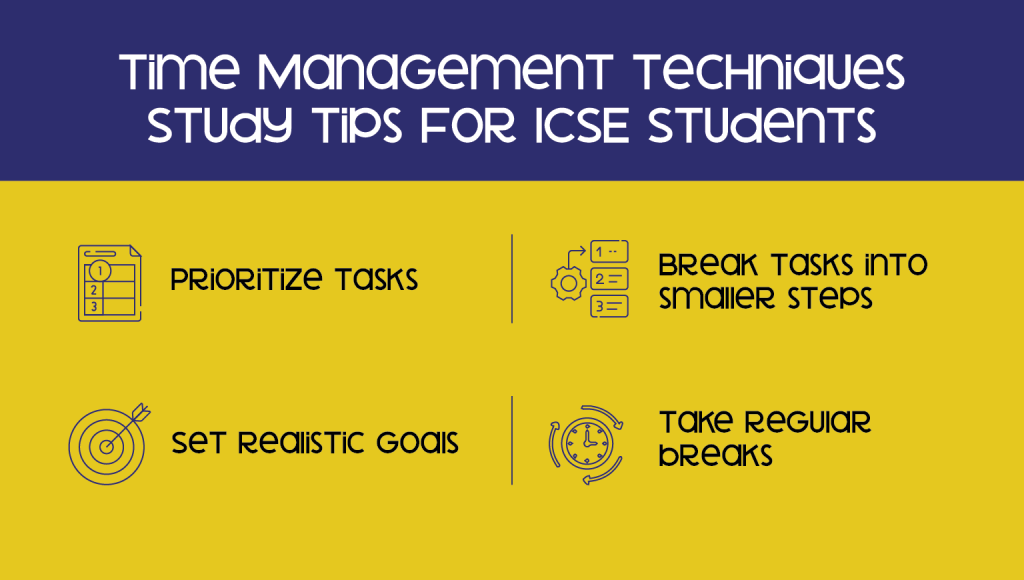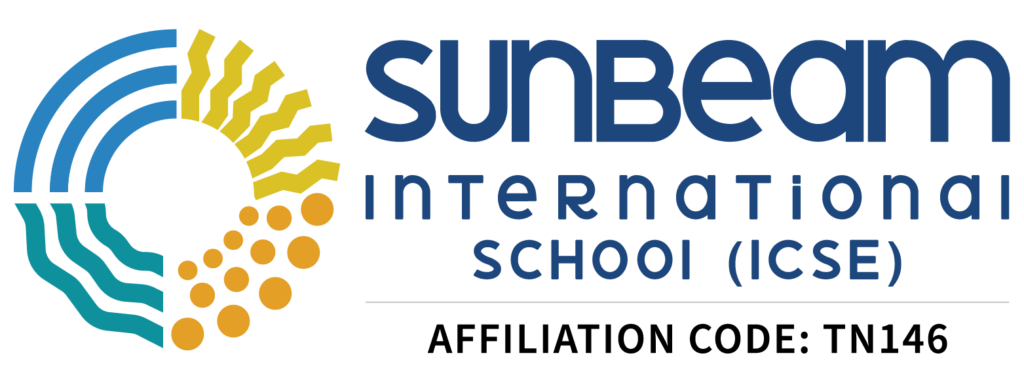

As an ICSE student, navigating through the pressures of exams can feel overwhelming. But fear not! With effective study strategies, time management techniques, and stress-relief practices, you can conquer exam stress and excel in your studies. In this blog, we’ll explore some valuable tips to help you navigate through the challenges of exam preparation with confidence and ease.
Effective Study Strategies:
- Create a study schedule: Break down your study material into manageable chunks and allocate specific time slots for each subject. Stick to your schedule to maintain consistency and avoid last-minute cramming.
- Practice active learning: Engage with the material actively by summarizing key concepts, creating flashcards, and teaching the material to someone else. This helps reinforce your understanding and retention of the material.
- Utilize past papers: Practice solving past exam papers to familiarize yourself with the exam format, identify areas of weakness, and improve your time management skills.
- Seek clarification: Don’t hesitate to reach out to your teachers or classmates if you have any doubts or questions. Clarifying concepts early on can prevent misunderstandings from snowballing into larger problems later.

Time Management Techniques:
- Prioritize tasks: Identify the most important tasks and allocate your time accordingly. Focus on completing high-priority tasks first before moving on to less urgent ones.
- Break tasks into smaller steps: Breaking down larger tasks into smaller, more manageable steps can make them feel less daunting and help you make steady progress.
- Set realistic goals: Set achievable goals for each study session and track your progress. Celebrate small victories along the way to stay motivated and focused.
- Take regular breaks: Schedule short breaks during study sessions to rest and recharge. Stepping away from your study material for a few minutes can help prevent burnout and improve productivity.

Stress-Relief Practices:
- Practice relaxation techniques: Incorporate relaxation techniques such as deep breathing, meditation, or progressive muscle relaxation into your daily routine to reduce stress and promote mental well-being.
- Stay active: Regular physical activity can help reduce stress, improve mood, and enhance cognitive function. Find activities you enjoy, whether it’s going for a walk, practicing yoga, or playing sports.
- Get enough sleep: Prioritize sleep and aim for 7-9 hours of quality sleep each night. A well-rested mind is better equipped to handle stress and retain information.
- Maintain a healthy lifestyle: Eat a balanced diet, stay hydrated, and limit caffeine and sugary foods, which can exacerbate stress and anxiety.

By implementing these study strategies, time management techniques, and stress-relief practices, you can navigate through exam stress with confidence and resilience. Remember to stay organized, stay focused, and take care of your well-being during this challenging time. With determination and perseverance, you’ll be well-prepared to ace your exams and achieve your academic goals. Best of luck!
– SBIS Editorial team
Quick Links
Newsletter
© 2024 - Sunbeam International School. All Rights Reserved.
kiralık katil girindpishibit child porn girindpishibit sitelerinize meritking basarsanız boss ekibi de size basacak! sitelerinize meritking basarsanız boss ekibi de size basacak! kiralık katil child porn child porn japon porno kiralık katil child porn kiralık katil child porn tecavüz kiralık katil child porn tecavüz kiralık katil child porn tecavüz sahabet tipobet kiralık katil child porn tecavüz kiralık katil child porn tecavüz kiralık katil child porn tecavüz kiralık katil child porn tecavüz kiralık katil child porn tecavüz kiralık katil child porn tecavüz sahabet tipobet kiralık katil child porn tecavüz tecavüz child porn tecavüz tipobet sahabet kiralık katil child porn tecavüz sahabet tipobet kiralık katil tecavüz child porn sahabet tipobet kiralık katil child porn tecavüz tipobet sahabet kiralık katil tecavüz child porn kiralık katil child porn miritking miritking madridbet kingroyal cihat aydın child porn child porn child porn child porn child porn


